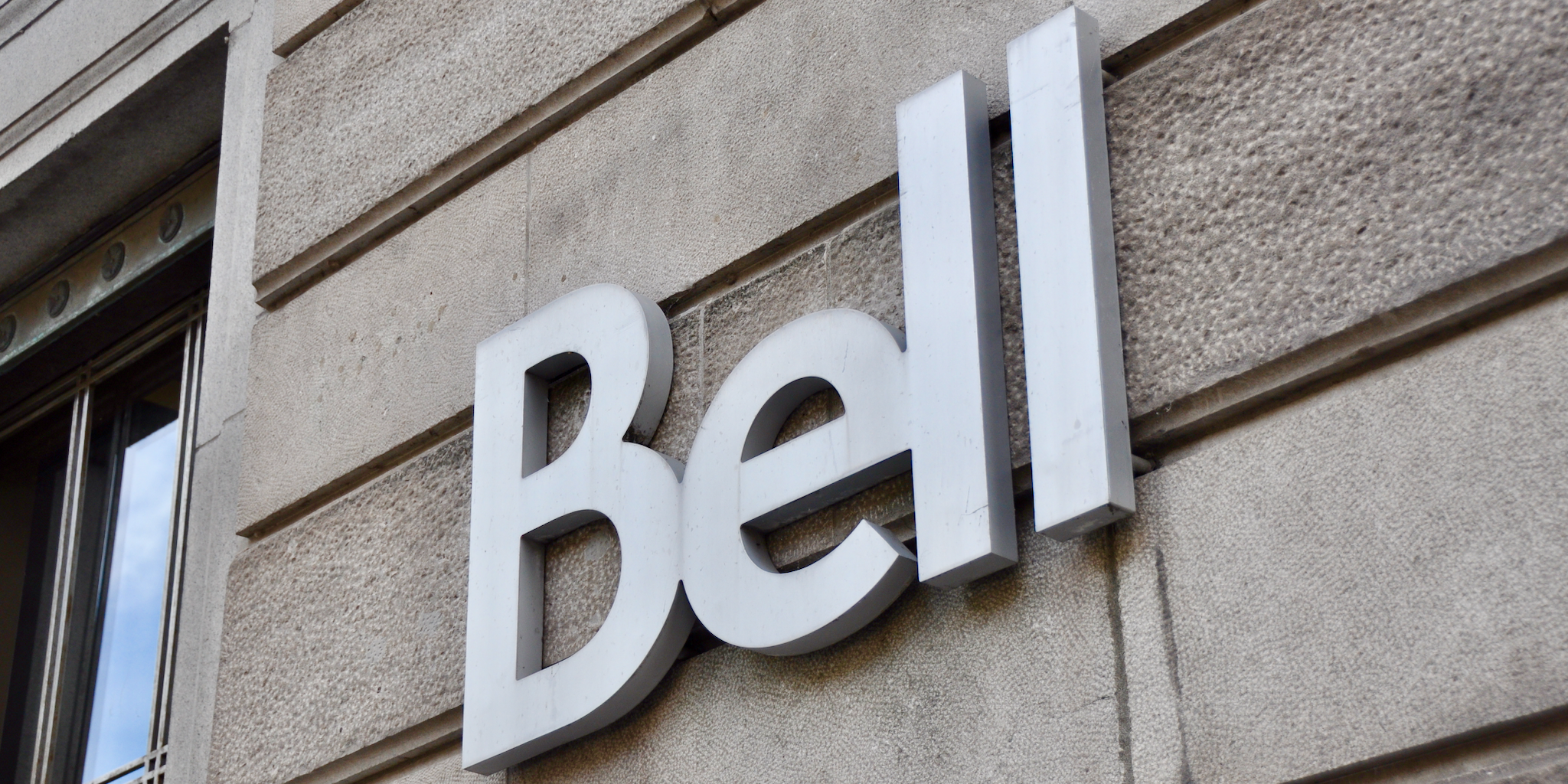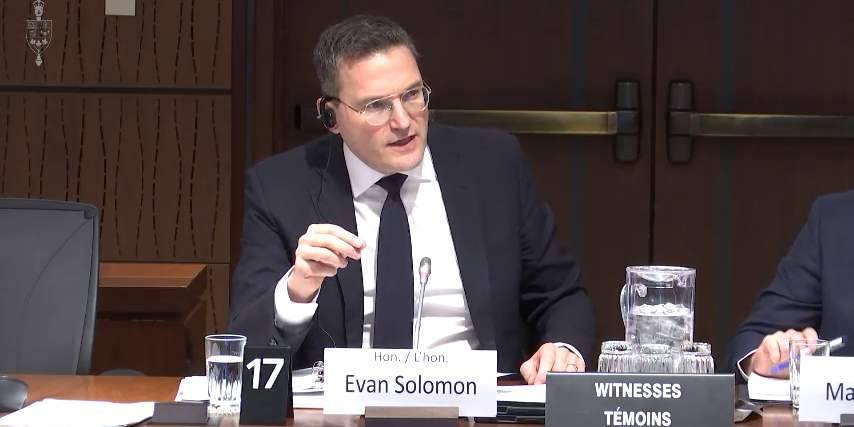
Court docs detail expansion of Canadian website-blocking order
Broadcast | January 8, 2020
Fresh documents are shedding light on how Canada’s first piracy case involving court-ordered website-blocking is playing out — revealing methods used by BCE Inc. to keep up with an expanding list of sites, and that Bell, Rogers Communications Inc. and Quebecor Inc. sent a letter asking third-party ISPs to keep mum about their request for new additions.
Bell investigators posed as customers seeking to purchase subscriptions to the pirate IPTV service targeted by the blocking order, affidavits filed with the court show. In poorly-spelled emails offering rudimentary customer support, the resellers of GoldTV directed the investigators toward other domains through which the investigators — posing as customers — could access the pirated service.
The domains they were given have now been added to an updated blocking order, issued on Dec. 20, which third-party ISPs such as TekSavvy Solutions Inc., Distributel Communications Ltd., and Cogeco Inc. must block customers from accessing.
That update is the first time the list has been expanded to include new domains not identified in the original November order — which was the first time Canadian courts ordered sites to be blocked for copyright infringement.
Another document in the case obtained by The Wire Report reveals that lawyers representing Bell, Quebecor, and Rogers also sent a letter privately asking the third party ISPs to keep quiet about the update until it was approved by the court. That letter was not included in the publicly-available court file available in Federal Court in Ottawa on Jan. 8.
In that one-page Dec. 4 letter sent to the ISPs, lawyers representing the three rights-holding companies wrote: “In order to ensure that the Order remains effective, the Plaintiffs respectfully ask that the Third Party Respondents refrain from publicizing the contents of the updated Schedule 1, including the domains and subdomains listed therein, until an Order requiring its implementation is issued, as applicable.”
“There is something extraordinary about the request,” University of Toronto law professor Ariel Katz said in a phone interview.
According to Katz, the fact of the letter demonstrates that there is not an adequately adversarial process with regards to site-blocking, with no representation for the public interest. The only party to appeal the website blocking is third-party ISP TekSavvy, in an ongoing court case.
“Normally, someone asks for an order, [and they] file something with the court. This is public information. And if you want to prevent it from being public, then you have to make your case to the court that it should not be made public, that it should be made behind closed doors.
“Even if the other parties agree [to the request in the letter], the court has to independently decide, because it’s in the interest of the public in open court. It’s not private arbitration,” Katz said.
“The ISPs, they have their own interests, but they don’t stand in to represent the interests of the general public, nor should they. They’re commercial companies who care about their own business: they’re not the government or anyone else that’s supposed to consider the interest of the public.”
Canadian Internet Policy and Public Interest Clinic (CIPPIC) director David Fewer said in a phone interview that “there’s got to be a very good reason” to keep new evidence confidential in any open court proceeding. He added that he found the request somewhat surprising, given that it was made outside of court.
Confidentiality of certain evidence is “not something that courts would have been unaccustomed to accommodating,” Fewer said.
The list of blocked domains and subdomains has grown from 12 in the original order, to 23 in the updated order. Allen Mendelsohn, McGill University law lecturer, said in a phone interview that the adding of new domains to the blocking order demonstrated the “whack-a-mole” nature of site-blocking orders.
One of the criticisms of such orders is that they must continually be expanded, and that there is the potential for sites to be blocked in error. For instance, one British court order blocks 16 different torrent services for the accessing of pirated content. In fulfilling the blocking order, ISPs have blocked 113 different sites, 47 of which the UK-based Open Rights Group (ORG) maintains are included in error.
The case, and the issue of site-blocking, has been a controversial issue in the Canadian telecom space, especially as a coalition of telecom companies and content producers came together under the banner of FairPlay in 2018 to ask the CRTC to create a site blocking regime. The commission declined to do so, saying it had no jurisdiction. Arguments in favour of site-blocking then moved to Parliamentary committees and the expert panel reviewing Canada’s communications legislation.
Telecom companies say that site-blocking is necessary to combat the the threat of piracy, while open internet advocates have said that site-blocking orders threaten the principle of net neutrality and are akin to prior restraint in the domain of free speech.
The affidavits filed with the court offer detail about the work done by Bell investigators after the initial order was issued.
In one of the affidavits, a Bell investigator outlines how on or around Nov. 22, after the initial GoldTV site-blocking order of Nov. 15 was issued, the investigator contacted a reseller of the GoldTV.biz pirate IPTV service and inquired with the reseller about why he could no longer access the service. After informing the reseller that his egde.tm subdomain was no longer working, the GoldTV reseller advised the Bell employee to use a new subdomain: gold.myiptvplanet.com.
Using a tool called Wireshark, the investigator identified which Internet address his set-top box connected to when accessing the subdomain gold.myiptvplanet.com, revealing portal.beex.me and beex.me to be providing access to the GoldTV service.
At the same time, a second Bell investigator used a similar process — though this time posing as a reseller of GoldTV subscriptions seeking assistance for the blocked service, and contacting a first reseller through texts and WhatsApp messages — to get a different domain: live4k.online.
The first investigator then plugged live4k.online into the set-top box and using the same Wireshark tool, identified another slew of subdomains used to access GoldTV: tulip.pctvhd.net, tv-tulip.pctvhd.net, hitron.pctvhd.net, and tv-hitron.pctvhd.net.
The law firm representing Bell, Quebecor, and Rogers declined to comment, as did Bell and Rogers’s media division. Quebecor did not respond to a request for comment.
— With reporting by Michael Lee-Murphy at mleemurphy@thewirereport.ca and editing by Anja Karadeglija at akarad@thewirereport.ca
kasyno online na prawdziwe pieniądze akceptują wiele różnych metod płatności. Należą do nich karty kredytowe, karty debetowe, e-portfele i przelewy bankowe. Większość z tych metod jest niezawodna i bezpieczna. Niektóre kasyna online w Polsce akceptują również kryptowalutę, która pozwala graczom dokonywać płatności bez pośredników zewnętrznych. Ta metoda może być nieco droższa niż tradycyjne, ale ma dodatkową zaletę polegającą na wyeliminowaniu opłat transakcyjnych stron trzecich.
Kasyna online w Polsce muszą uzyskać licencję Ministerstwa Finansów na działalność. Ponieważ polska ustawa hazardowa została zaktualizowana w 2017 r., zagraniczne firmy nie mogą oferować nowych gier obywatelom polskim bez licencji. To sprawia, że polskie kasyna online są szarą strefą. Dlatego gracze powinni być bardzo ostrożni przy wyborze kasyna online.
Kasyna online w Polsce oferują różnorodne bonusy. Są dobrym rozwiązaniem, jeśli chcesz grać w gry bez wychodzenia z domu. Co więcej, nie musisz się martwić o ruch uliczny ani hałas w kasynie naziemnym. Możesz nawet zalogować się na swoje konto za pomocą telefonu.
Wiele kasyn online akceptujących graczy z Polski oferuje hojne bonusy powitalne. Te bonusy powitalne są zwykle najbardziej dochodowe. Typowy bonus powitalny to 100 procent pierwszej wpłaty. Niektóre witryny zwiększają nawet do 200 lub 300 procent, co jest świetnym sposobem na zwiększenie bankrolla. Ważne jest również, aby pamiętać, że będziesz musiał postawić wszystkie te darmowe pieniądze, zanim będziesz mógł je wypłacić.
Hazard online w Polsce to rosnące zjawisko. Chociaż w Polsce nadal obowiązują surowe przepisy dotyczące hazardu, kraj ten ma ogromną populację, która uwielbia grać w gry kasynowe. Liczba kasyn online w Polsce stale rośnie w ciągu ostatnich dwóch dekad. Jednak firmy hazardowe naziemne nadal mają przewagę nad kasynami online.
W Polsce istnieje 17 licencjonowanych strojów bukmacherskich. Ponadto istnieje również kilka kasyn online, które działają na licencjach z innych krajów. Większość z tych kasyn online jest prowadzona przez państwowy Totalizator Sportowy. Te stroje oferują szeroką gamę opcji zakładów sportowych w Polsce.
La France est une destination populaire pour les personnes qui cherchent à jouer. Il a abaissé la limite d’âge pour le jeu, et le jeu est largement apprécié en France. En fait, l’industrie du jeu est une industrie d’un milliard de dollars dans le pays. C’est une incitation majeure pour les résidents et les touristes, et les autorités n’y voient pas vraiment de problème tant que les réglementations sont respectées et que les joueurs agissent de manière responsable.
La France est l’un des pays les plus sûrs pour jouer en ligne. Le pays a une atmosphère de jeu conviviale, les casinos en ligne étant légalisés en France. La réglementation en place a pour but d’empêcher les personnes de déraper et d’être responsable. Cependant, ces réglementations ne sont pas le seul facteur à prendre en compte lorsque vous jouez dans des casinos en ligne en France.
La France a une longue histoire de jeu et a une forte culture du jeu. Les jeux d’argent en ligne sont devenus légaux sous certaines formes en France depuis 2010, notamment les paris sportifs en ligne. Cependant, la France conserve toujours le monopole des casinos terrestres, qui est contrôlé par le ministre de l’Intérieur. De plus, seuls les casinos publics peuvent fonctionner en ligne.
Malgré cela, les casinos en ligne français ne sont pas entièrement sûrs. Il est interdit aux casinos en ligne français de proposer certains des jeux de casino les plus populaires. En effet, ces jeux sont très addictifs et dangereux pour les joueurs français. Cependant, il y a quelques exceptions. Par exemple, les casinos en ligne français ne sont pas autorisés à proposer des machines à sous et d’autres jeux de casino populaires. Cela ne signifie pas pour autant que les casinos internationaux ne pourront pas proposer de tels jeux en France.
Les lois sur les jeux d’argent en France sont très strictes. Si un casino en ligne prétend être le meilleur casino en ligne de France, il ment probablement. Il est préférable de jouer dans les casinos terrestres, qui sont beaucoup plus sûrs. Il est préférable de vérifier les lois sur les jeux d’argent dans votre pays avant de jouer en ligne.
Most state capitals in Australia have a few gambling establishments, including the Crown Casino in Melbourne, the Star Casino in Sydney, and the Treasury Casino and Hotel in Brisbane. However, no legal online casino in Australia offers these types of games. You can, however, enjoy a wide variety of different games, including live casino games.
Pokies are the most popular type of game offered at Australian casinos. They generate billions of dollars each year. Different states have different gambling laws, so make sure to check if the casino is licensed in your state. In Queensland, for example, casino gaming rules outline a person’s rights and responsibilities when playing.
The best way to determine if an online casino is safe for Australian players is to visit an Australian casino. The country has laws in place to protect players from unscrupulous operators. While accessing online casino games is not illegal, some Australian companies may choose not to accept players from other countries. If this is the case, you should be sure to check whether the online casino is licensed by the Australian government or by a reputable institution.
australia casino minimum deposit tend to focus on two different types of games: table games and pokies. If you prefer to play live games, you can opt for online casinos that offer live dealers. The best Aussie online casinos have games from as many as 60 to 100 different software providers. In addition to these, they often feature a wide variety of games, so you can be sure to find something that suits your needs. These casinos are also available for mobile devices.
Online casinos in Australia offer a wide range of payment methods. You can also find mobile apps that mimic desktop websites. You will have to download the mobile app depending on the device you’re using. Australian online casinos also offer a variety of bonuses, from free spins to free tournaments. These bonuses can make the gaming experience even more rewarding.
If you’re looking for an online casino that offers a range of options, MegaSlot has plenty of features that make it an excellent choice. This mobile platform also has excellent bonus offers and a great VIP program. This is a relatively new casino in Australia, but it already has enough to make it a great destination for Australian gamblers.
Despite the recent changes in Australian law, there’s still no reason for you to avoid online casinos in Australia. The IGA is intended to protect the interests of Australian citizens from harmful effects of web-based gambling. However, the legislation doesn’t make it illegal to play online, and hundreds of offshore casino operators accept Australian players.




